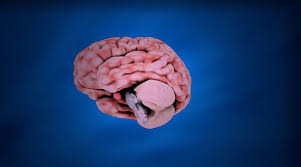
Breaking News
 Sunday FULL SHOW: Newly Released & Verified Epstein Files Confirm Globalists Engaged...
Sunday FULL SHOW: Newly Released & Verified Epstein Files Confirm Globalists Engaged...
 Fans Bash Bad Bunny's 'Boring' Super Bowl Halftime Show, Slam Spanish Language Performan
Fans Bash Bad Bunny's 'Boring' Super Bowl Halftime Show, Slam Spanish Language Performan
 Trump Admin Refuses To Comply With Immigration Court Order
Trump Admin Refuses To Comply With Immigration Court Order
 U.S. Government Takes Control of $400M in Bitcoin, Assets Tied to Helix Mixer
U.S. Government Takes Control of $400M in Bitcoin, Assets Tied to Helix Mixer
Top Tech News
 SpaceX Authorized to Increase High Speed Internet Download Speeds 5X Through 2026
SpaceX Authorized to Increase High Speed Internet Download Speeds 5X Through 2026
 Space AI is the Key to the Technological Singularity
Space AI is the Key to the Technological Singularity
 Velocitor X-1 eVTOL could be beating the traffic in just a year
Velocitor X-1 eVTOL could be beating the traffic in just a year
 Starlink smasher? China claims world's best high-powered microwave weapon
Starlink smasher? China claims world's best high-powered microwave weapon
 Wood scraps turn 'useless' desert sand into concrete
Wood scraps turn 'useless' desert sand into concrete
 Let's Do a Detailed Review of Zorin -- Is This Good for Ex-Windows Users?
Let's Do a Detailed Review of Zorin -- Is This Good for Ex-Windows Users?
 The World's First Sodium-Ion Battery EV Is A Winter Range Monster
The World's First Sodium-Ion Battery EV Is A Winter Range Monster
 China's CATL 5C Battery Breakthrough will Make Most Combustion Engine Vehicles OBSOLETE
China's CATL 5C Battery Breakthrough will Make Most Combustion Engine Vehicles OBSOLETE
 Study Shows Vaporizing E-Waste Makes it Easy to Recover Precious Metals at 13-Times Lower Costs
Study Shows Vaporizing E-Waste Makes it Easy to Recover Precious Metals at 13-Times Lower Costs
NIH Greatly Expands Investment in BRAIN Initiative

The National Institutes of Health announces funding of more than 200 new awards, totaling over $220 million, through the Brain Research through Advancing Innovative Neurotechnologies (BRAIN) Initiative, an exciting trans-agency effort to arm researchers with revolutionary tools to fundamentally understand the neural circuits that underlie the healthy and diseased brain. Supported by the Congress through both the regular appropriations process and the 21st Century Cures Act, this brings the total 2018 support for the program to more than $400 million, which is 50 percent more than the amount spent last year. Many of the new awards explore the human brain directly. Furthermore, the NIH is trying to leverage some BRAIN Initiative advances to help tackle the pain and opioid crisis.
"Brain diseases are some of the greatest mysteries in modern medicine. These projects will provide new tools and knowledge needed to discover answers for some of the most difficult neurological and neuropsychiatric disorders," said NIH Director Francis S. Collins, M.D., Ph.D.

 Smart dust technology...
Smart dust technology...

